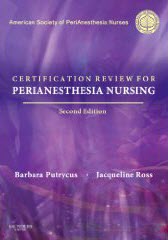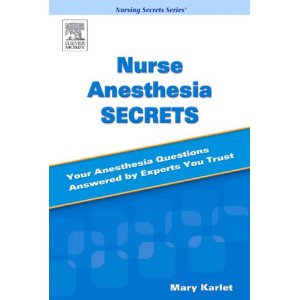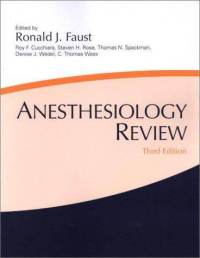CRNA Pocket Resource
December 15, 2011 by Rn2b
Filed under Certified Registered Nurse Anesthetist (CRNA), Nursing Books, Testing and Exam Help
When you’re about to go into the operating room, be interviewed for a job, or are just looking for a refresher, this handy book, Pocket Anesthesia by Richard D. Urman, MD.; Jesse M Ehrenfeld, MD.; and Richard D. Urman is the way to go.
For a Certified Registered Nurse Anesthetist (CRNA), this pocket reference guide is awesome. It covers every major patient management issue someone will find in clinical anesthesia, all in one concsice, pocket-size and ring-bound book. With 36 chapters and 302 pages, this thing is surprisingly small and contains a lot of information.
It’s a great resource any CRNA could use.
Pocket Anesthesia
Site Price: $46.79Amazon review:
I kept on seeing students, residents, CRNAs and even attendings in the department using this book to prepare for cases and for the boards. So I ordered a copy for myself and am extremely pleased. While the book looks small it is complete and comprehensive, including both basic and advanced topics. The six-ring binder fits nicely in the pocket of my lab coat or I can choose to just carry a few of the loose-leaf pages around with me. There is a LOT of information crammed into this little book. It’s generously illustrated with many relevant lists, tables, and algorithms, which condenses a ton of information. A very, very useful resource in deed, I recommend it for everyone studying or practicing Anesthesiology.
Exam Review PACU Certification
August 8, 2011 by Rn2b
Filed under Certified Registered Nurse Anesthetist (CRNA), Nursing Books, Testing and Exam Help
 Certification Review for PeriAnesthesia Nursing
Certification Review for PeriAnesthesia Nursing
Site Price: $42.44
![]()
PACU (post-anesthesia care unit) is the certification needed by the American Society of PeriAnesthsia Nurses (ASPAN) which grants a CRNA right to aid during anesthesia and helping patients recover.
This book, Certification Review for PeriAnesthesia Nursing, is written by ASPAN, and is a question-based CAPA and CPAN exam review. There are 700 questions, explaining rationales and references. It tests your core knowledge, skills, and principles that are necessary in the field.
Become an integral part of hospitals and other medical facilities with your certification.
CRNA Certification Exam Review
June 6, 2011 by Rn2b
Filed under Certified Registered Nurse Anesthetist (CRNA), Nursing Books, Testing and Exam Help
In the surgical field, a Certified Registered Nurse Anesthetist (CRNA) is vital to a successful surgery. A CRNA is an Advanced Practice Registered Nurse (APRN) with a graduate-level education and certified by the American Association of Nurse Anesthetists (AANA). They usually have practiced critical care for one year prior.
Since a CRNA is so educated in the field, when they have a position, it is unlikely they will be replaced by anesthesiologists. Every two years, a CRNA must become recertified, and they require continual education credits depending on the state.
 Many nurses that have CRNA certification used the book Anesthesia Secrets by Duke. It provides straight forward Q&A formatting with reviews of a lot of topics. It covers equipment, daily essential information, pharmacology, disorders, and more.
Many nurses that have CRNA certification used the book Anesthesia Secrets by Duke. It provides straight forward Q&A formatting with reviews of a lot of topics. It covers equipment, daily essential information, pharmacology, disorders, and more.
Another book recommended by CRNAs is Anesthesiology Review by Faust. It has a comprehensive coverage of all the necessary topics, and has an easy to use format. It is in-depth in areas required, and is great for a CRNA foundation and review.

